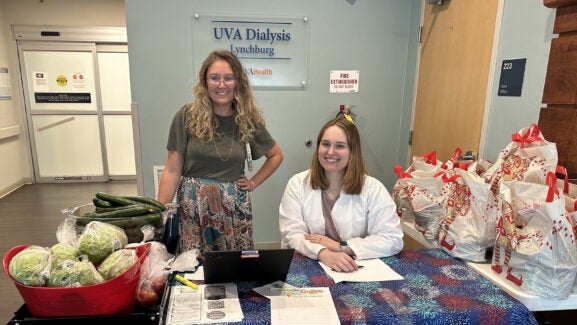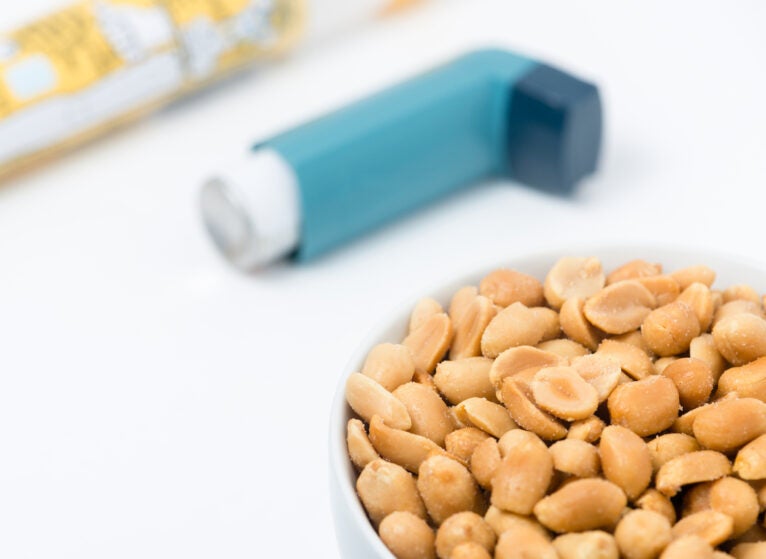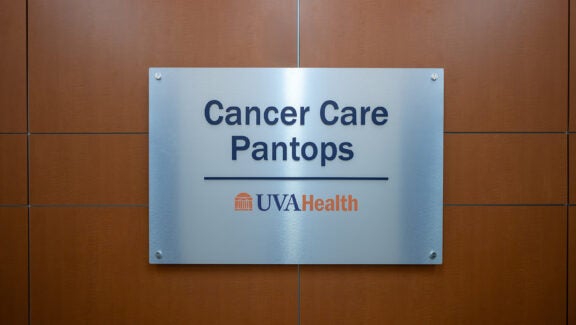

Test of Peanut Allergy Treatment in Young Kids Proves Highly Successful
A real-world study of peanut oral immunotherapy in children younger than 3 has shown the approach is both safe and effective at desensitizing children to the increasingly common food allergy.
The UVA Health Children’s researchers enrolled 30 peanut-allergic children in the study of what is called epOIT — Early Peanut Oral Immunotherapy. The researchers cautiously and gradually increased the dose of peanut protein the children were given. Sixteen children showed no adverse effects at all, while 12 suffered only mild hives or rash that were easily treated with antihistamines. Three children did not complete the trial, including one due to an anaphylactic reaction occurring at home. (There was no placebo group in the study.)
All of the 27 children who completed the study were ultimately able to consume a “maintenance dose” of 500 mg of peanut protein per day. One child even accidentally consumed about 3,000 mg of peanuts (about 40 Reese’s Pieces) and had no reaction. Eight other children were able to complete a formal peanut food challenge in the allergy clinic and are now freely eating peanut.
Based on their results, the researchers are calling for larger, multicenter clinical trials to advance what could be a gamechanging new treatment for peanut allergies in very young children.
“Our study demonstrated that epOIT performed in younger ages — starting less than age 3 — is quite safe and effective at achieving desensitization: consumption of the equivalent of about two peanuts daily,” saya researcher Jonathan Hemler, MD, a pediatric food allergist at UVA Health Children’s. "About one-third of the cohort eventually were also able to achieve free consumption of peanut after passing a formal peanut food challenge in the allergy clinic, which is very exciting. Our study corroborates the findings of other published studies which show ‘the younger the better’ when starting desensitization therapy for peanut allergy.”
Peanut Allergy in Young Children
The number of children suffering peanut allergy has grown over the last several decades and now affects approximately 2% of all kids. It’s the leading cause of pediatric emergency room visits among food allergens. While some children eventually outgrow the allergy, a whopping 70 to 80% do not. That leaves the children and their families desperate to avoid accidental exposures, often requiring dramatic changes in their lifestyles. Routine childhood activities such as enjoying a school snack can be perilous, even deadly.
Prior studies had suggested that peanut oral immunotherapy can desensitize children to peanuts if started early enough, providing protection from an allergic reaction in case of accidental exposure. But Hemler and his colleagues wanted to put that to the test in a real-world clinical setting.
After having detailed discussions with parents about the potential risks involved, they began by giving the young trial participants 14 mg of peanut per day — less than 5% of a typical peanut. The families then returned to UVA Health Children’s every two weeks to increase the dose and be observed after taking the increased dose to make sure the children were OK.
All the 27 participants who completed the study eventually were able to sustain the 500 mg target for daily peanut consumption — the equivalent of about two peanuts.
After consuming 500 mg of peanut protein daily for at least a year, eight of the children who showed the most promising responses in their allergy testing results moved on to consume a “challenge” dose of 6,000 mg of peanut protein. All did so without symptoms, and their families then were told the children could eat peanuts freely, but to keep peanut in their child’s diet regularly to maintain this protection. The child who accidentally consumed all those Reese’s Pieces was given the same direction, and none of the nine children has since had his or her peanut allergy return.
Hemler and his colleagues say their promising results offer important evidence that the approach is safe and effective in children ages 6 months to 3 years old. They posit that starting peanut allergic children on epOIT very early in life made them more likely to become desensitized — the average age of the study participants at the start of the study was only 14 months.
While more testing, at a larger scale, is needed, the researchers are encouraged by the initial results.
“The allergy community needs definitive answers as to whether epOIT can possibly help induce tolerance or outgrowth of peanut allergy,” Hemler says. “This would require a robust double-blinded, multicenter, placebo-controlled clinical trial. However, there are ethical considerations when designing such a trial around whether giving placebo to these young children could cause harm, given the findings from our study and the current published literature.”
Findings Published
The researchers have published their findings in PAI, Pediatric Allergy and Immunology. The article is open access, meaning it is free to read. The research team consisted of Hemler, Samantha Minnicozzi, Anne Carey, Karen Braden and Kelly Boyd. The researchers have no financial interest in the work.
The study was supported by Food Allergy Research and Education (FARE).
To keep up with the latest medical research news from UVA, subscribe to the Making of Medicine blog.
Latest News



